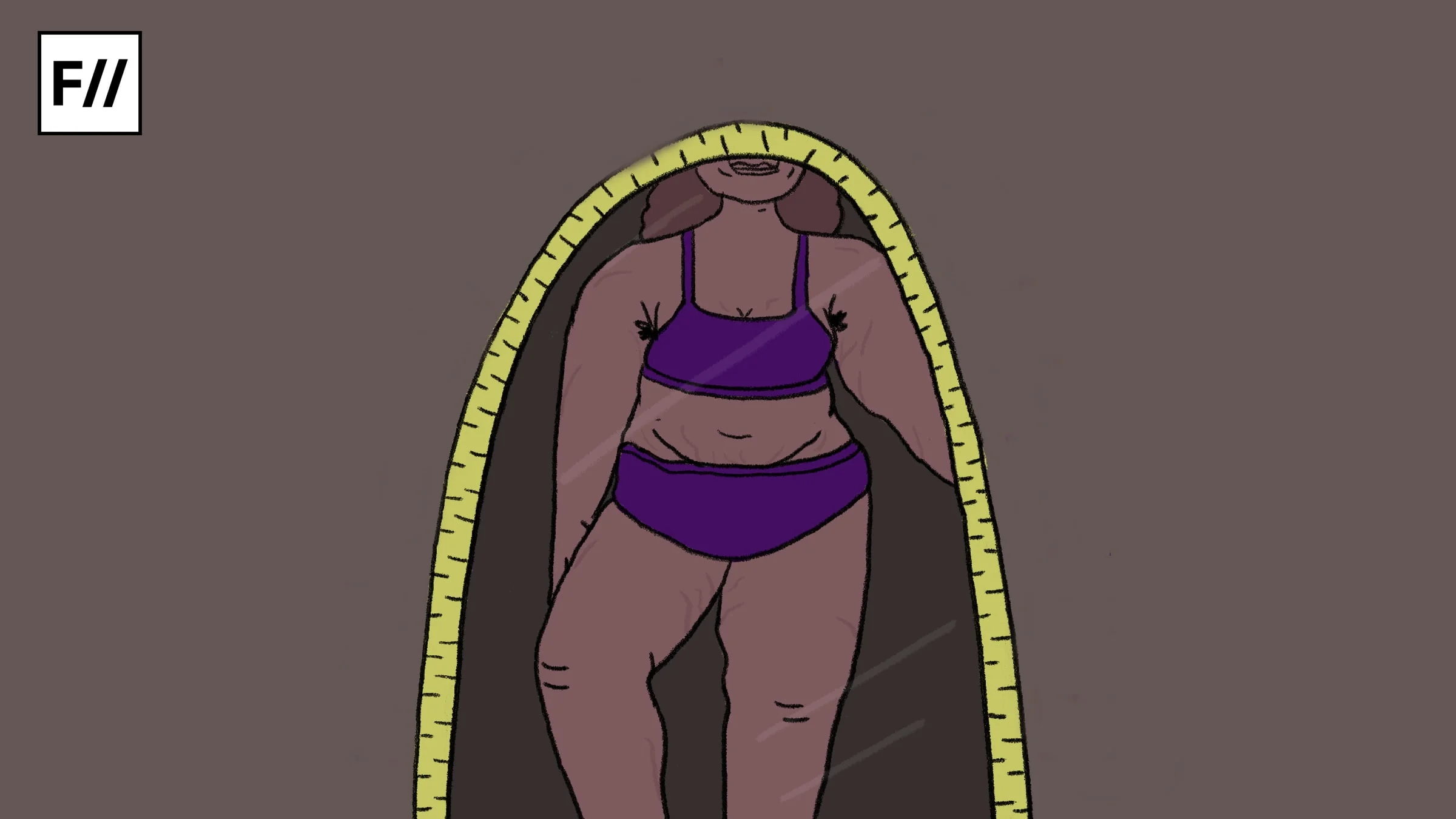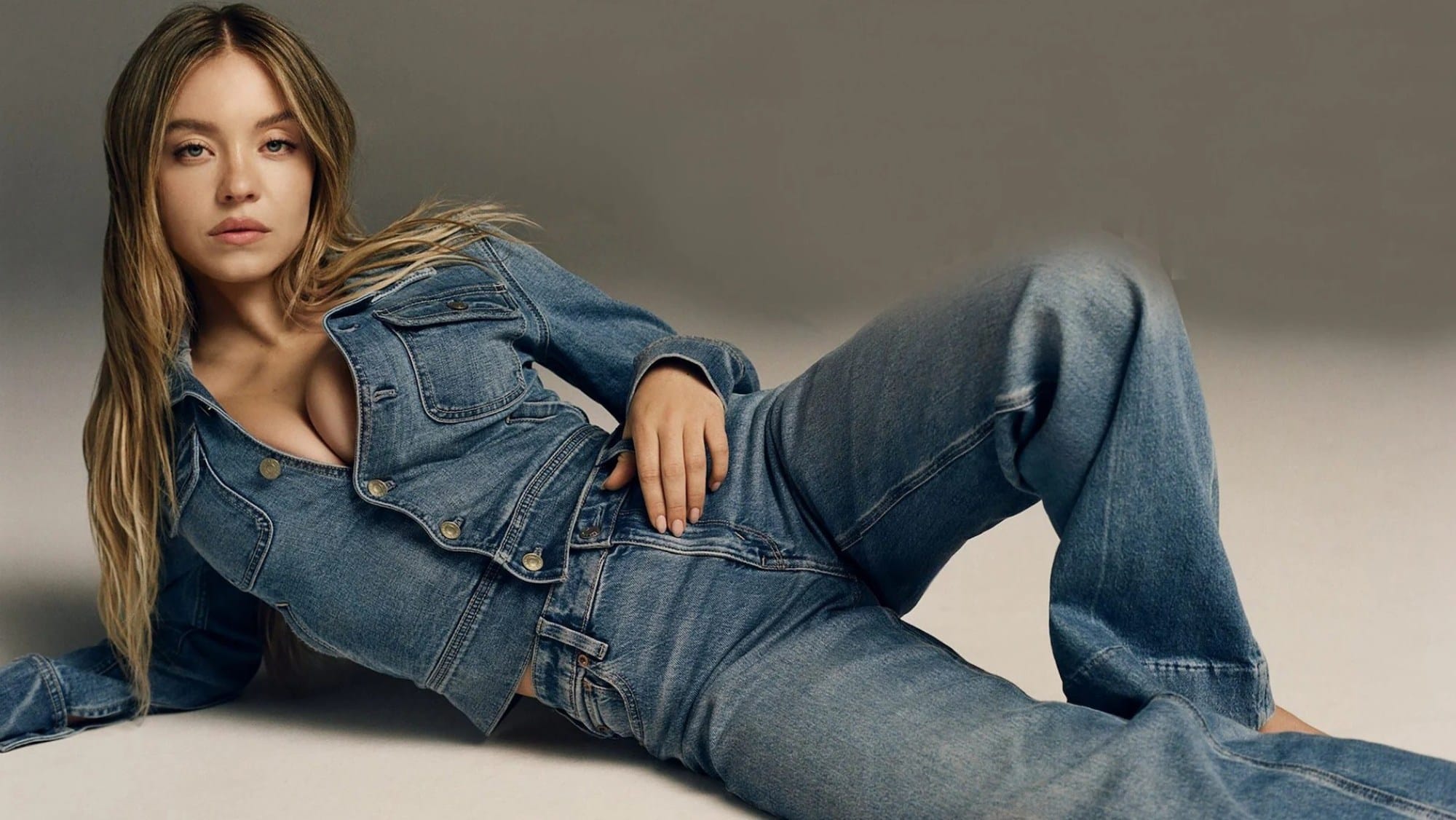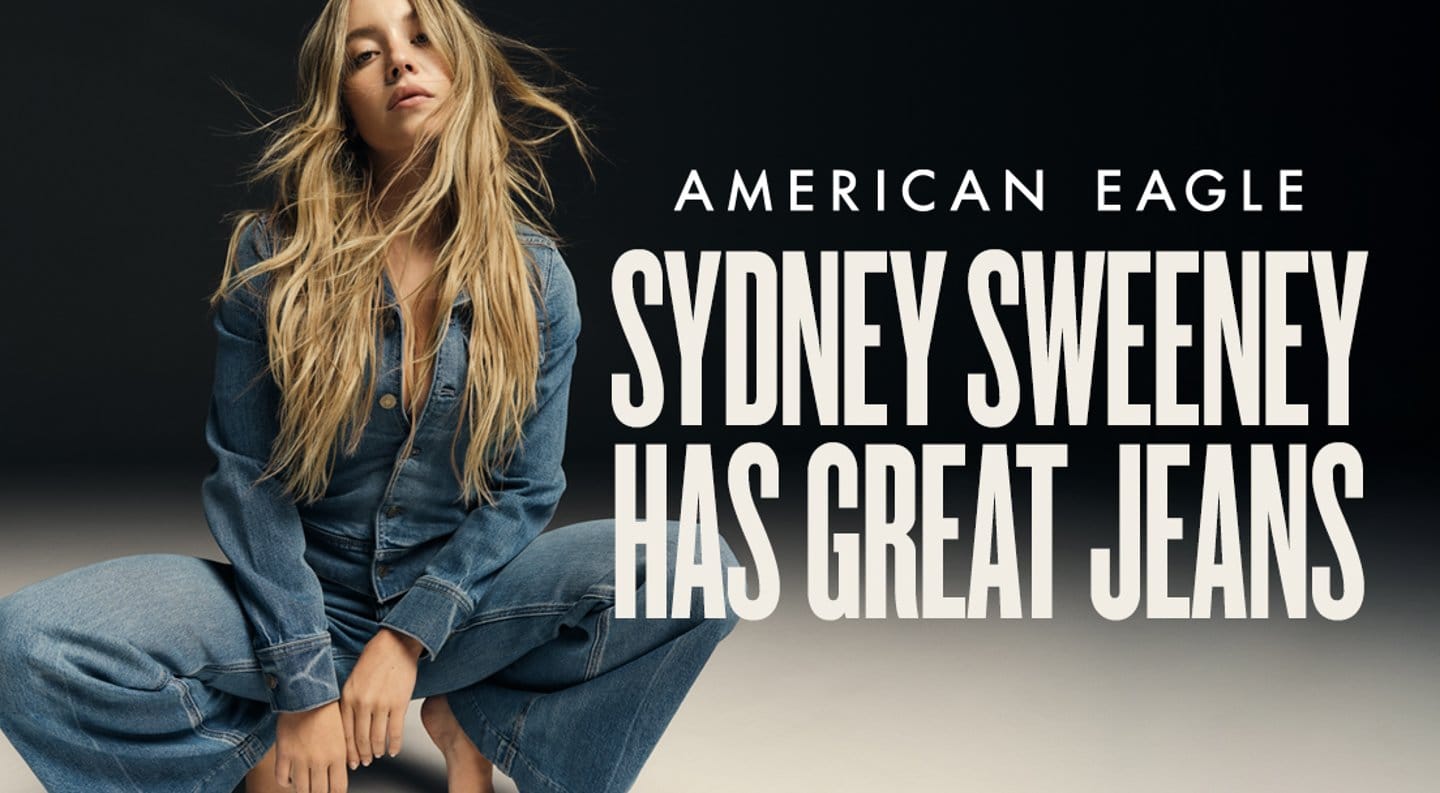Last month, the popular American clothing brand American Eagle had shared an ad for their latest denim products, featuring Sydney Sweeney. In the ad video, the actor is seen walking up to a wall poster of herself with the words ‘Sydney Sweeney has great genes‘ below the brand name, and quickly, the word “genes” is replaced by “jeans”. In another such ad video, Sydney poses relaxedly, saying, ‘genes are passed on from parents to offspring, often determining traits like hair colour, personality, and even eye colour. My genes are blue.‘ These ads garnered a lot of attention, quickly became the talk of the town, and received a lot of backlash for the message in those being racist and even “Nazi propaganda”.
Is American Eagle’s ad just wordplay? Or is it more? Why all the backlash?
Anyone who speaks English and watches these ads can quickly understand the double entendre in the ads, genes vs. jeans. It’s just wordplay, right? How could it be offensive? Well, it is not just some witty choice of words there but linguistic racism. Yes, words and everyday language also play a crucial role in encouraging and promoting discrimination in different forms. In fact, words are more powerful than one can guess: casual jokes can subconsciously strengthen wrong, unfair, false, unscientific, and inhuman ideas in the minds of the audience, making the oppressed feel worse and the oppressor feel that they are indeed right to feel superior and treat others as inferior to them.
The brand had claimed that all the profit from these products will go to a non-profit offering free 24/7 mental health support, and if that were the case, really, that would be nice. But given the current political climate in the US, it is only understandable that brown and black people feel attacked and threatened, and being an American brand, American Eagle should have thought about it before going forward with that ad. Was it intended this way, as an attack against the under-represented and oppressed people of colour? One can never know the true intention behind the scenes and can only assume whatever speaks to their beliefs, but in the current state, this was deeply insensitive on their part.
If you say that having “great genes” is equal to being white, blonde, fitting into a certain BMI range, having a certain height and having the bodily and facial features of a white woman, then what do you have to say about the “genes” of a black or brown or Asian man or woman or queer person who is not blonde and is much taller or shorter, skinnier or overweight or obese, and has a disability? Is this still a joke? Is it even funny? Also, this ad has opened several important conversations around the subject of beauty, femininity, race, and more. Let’s break it down and address the different perspectives here.
A history of eugenics in America
According to Wikipedia, Eugenics is a set of largely discredited beliefs and practices that aim to improve the genetic quality of a human population. This included practices that aimed to inhibit the fertility of those considered inferior and promote that of those considered superior, and is therefore an example of what’s called scientific racism. ‘While its American practice was ostensibly about improving genetic quality, it has been argued that eugenics was more about preserving the position of the dominant groups in the population. Scholarly research has determined that people who found themselves targets of the eugenics movement were those who were seen as unfit for society—the poor, the disabled, the mentally ill, and specific communities of color—and a disproportionate number of those who fell victim to eugenicists’ sterilization initiatives were women who were identified as African American, Asian American, or Native American‘ says Wikipedia.
It is understandable that this was blatant racism. Also, Adolf Hitler was supportive of eugenics and considered homosexuals, people of certain races, and people with disabilities, among other oppressed groups as “unfit”, leading to sterilisation and mass murder. No wonder those who oppose discrimination based on “beauty” standards set by white men call it “Nazi propaganda”!
Who gets to say what “beauty” really is?
If “genes” that strongly contrast Sydney Sweeney’s features are not really “great”, is that something to be ashamed of for people who don’t fit such standards of beauty? Are they supposed to be ashamed for life for not looking that good? Are they supposed to blame their parents for passing on to them such genes? So American Eagle is basically insulting – knowingly or unknowingly – a vast majority of the world in just one tagline.
The role of patriarchy in what should be deemed “beautiful”
Comments by cis-het men on women’s appearances, as a woman being good-looking or ugly, and even rating women’s bodily features is not something new; such patriarchal practices have been normalised across the world, in almost all cultures, for centuries now. While calling a woman “ugly” or “not attractive enough” or something like that is an open insult, calling a woman “sexy” or “hot” is not always a healthy compliment either; often such ‘compliments’ only sexualise women, meaning, men get away with treating women like mere objects that they want to use for their pleasure and fantasies and nothing more, as if there is really nothing valuable or worthy of respect about a “hot woman” except for her body features that make her hot.
For ages now, men continue to believe that certain features in women are what make her attractive or unattractive to a man, and that they somehow have the right to set such standards for women, that they expect women to try hard to fulfill. Each time such practice is encouraged, sexualising women is further normalised. And it is not something that men are unaware of – you would almost never catch a man passing sexual remarks like how attractive or not a girl’s breasts or buttocks are when that woman happens to be their own sister or mother.
Cis-het men know very well that sexualising women is wrong, yet they do it because they think nobody would question them. In that case, it is only right for women to express their disappointment and rage against any action or content or even brand that promotes such thinking and behaviour. And in doing so, let us not forget the double standards that a lot of such men seem to have sworn to live by – if Sydney Sweeney has “great genes”, these men do not have either the genes or jeans of Chris Hemsworth. Yet they want to be considered desirable by women.
The role of capitalism in building self-esteem: maybe you will continue to remain ugly until you sign up for a subscription?
Patriarchy’s twin in setting beauty standards, capitalism, has also for centuries been profiting off making women feel bad about their looks. Be it the rise of unhealthy and toxic fairness creams in India, or holding on to the belief that a thin body is a healthy body, or Americans, mainly the women going for “lip fillers”, or the increased risk of trans women dying by suicide during transition, or the death by suicide of a girl bullied for being fat, or women of colour straightening their hair to avoid discrimination, or a “normal” husband saying to his wife that she is “fat” and therefore, unattractive, across the world, in any culture you can think of, capitalism plays a role.
From receiving condescending looks from your peers for being “ugly” to being cat-called on the roads for “looking sexy” to living life in unhealthy ways to just be accepted to wanting to die by suicide because you are “not good-looking”, capitalism’s role is undeniable.
From receiving condescending looks from your peers for being “ugly” to being cat-called on the roads for “looking sexy” to living life in unhealthy ways to just be accepted to wanting to die by suicide because you are “not good-looking”, capitalism’s role is undeniable. It’s there everywhere: in the cosmetics industry, in the clothing industry, in fashion brands, in media, cinemas, series, OTT, and social media, in places, communities, and families where women do not have many options to make a living and afford their basic needs, so they are forced to please men and succumb to cruel demands, and sadly, even in the health industry.
The role of capitalism in setting beauty standards is like the elephant in the room that’s rarely ever addressed. Most women reading this might be dependent on certain cosmetic products because they are conditioned to believe that they have to use those products to feel seen, to be accepted, to be deemed as attractive and not ugly. Well, this does not apply to just women but to men, too. But again, the double standards shall prevail, especially in countries where misogyny is kept alive and kicking.

In a capitalist world, any product or service can survive only when buyers are groomed to believe that they are dependent on these brands. None of these are truly customer-friendly or wish you well. This is why we need more awareness and action to mandate policies that align with DEI (diversity, equity, and inclusion) everywhere.
Unfortunately, because of this insensitive ad, even if they meant well when they made the decision to donate the money to a non-profit, that message got completely lost. ‘Ignorance allows for racism, but racism requires ignorance. It requires that we don’t know the facts,‘ says Sarah Lewis, Associate Professor of African and African American Studies at Harvard University. If not intentionally racist, the American Eagle ad which was deeply upsetting for many people of colour still did come from a place of ignorance.
Words matter. And those working in the field of branding, marketing, and ad-making can do better.
Words matter. And those working in the field of branding, marketing, and ad-making can do better. We can only hope that brands become more sensitive and people become more humane; in the meanwhile, let us also ask ourselves, ‘How much of how I see myself comes from how someone else judges me? How fair or unfair is this? Is that what I am teaching my daughter, too?‘. Let us all come together to oppose unfair standards for beauty and lifestyle that we are compelled to live by.
About the author(s)
Lakshmi Prakash is a data scientist. She sees practicing equality, humanity, and science as the only possible path to a progressive future and holds that the absence of any one of these will negate any growth in other areas. Her hobbies include reading fiction and non-fiction, learning something new, brisk-walking, cycling, and writing a chapter only to forget where she saved it.







Eugenics and white supremacy were the overt message of this advertisement. Let us not be naive to think it could have been anything else.